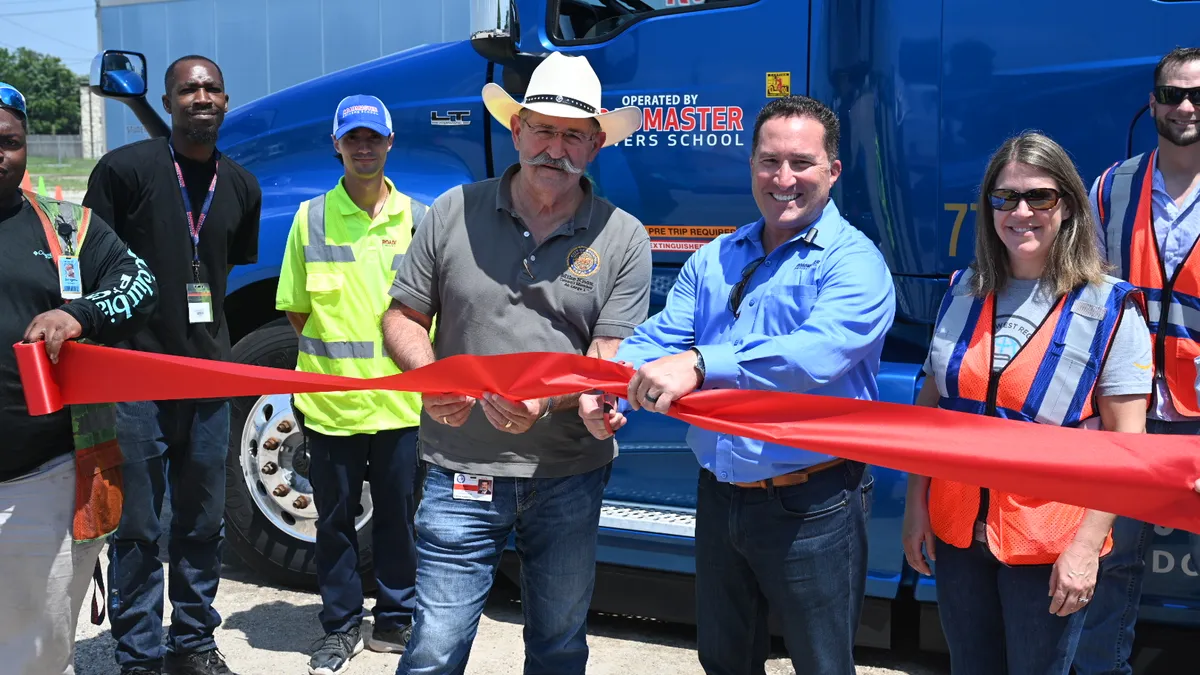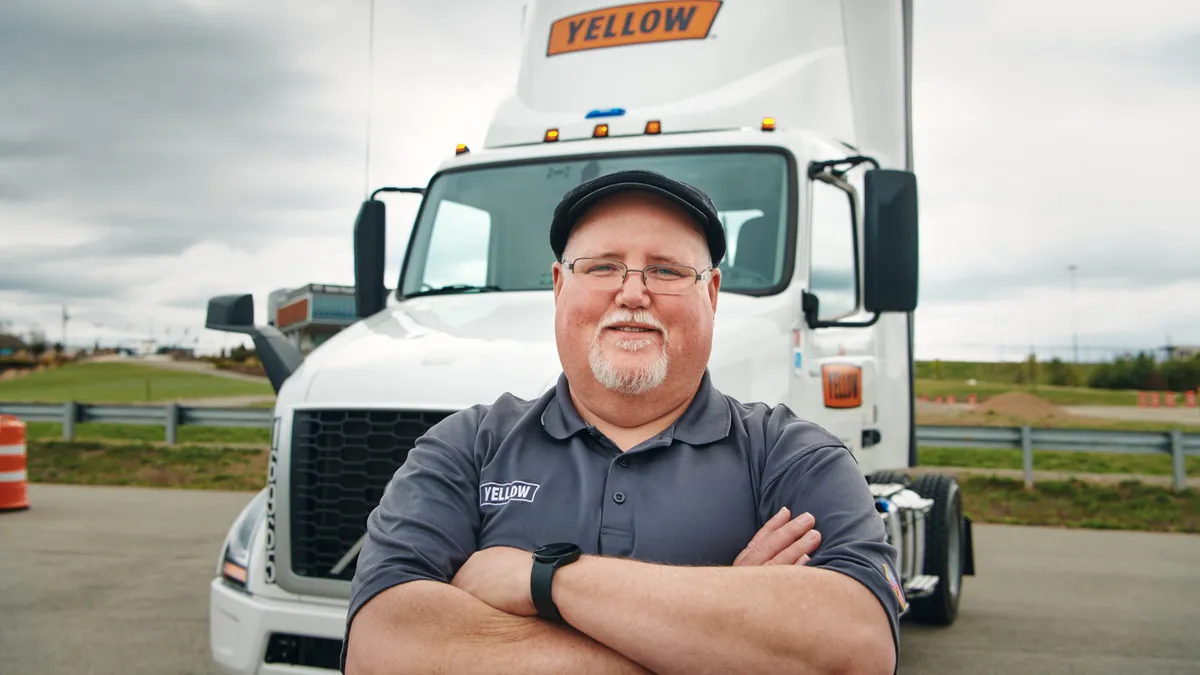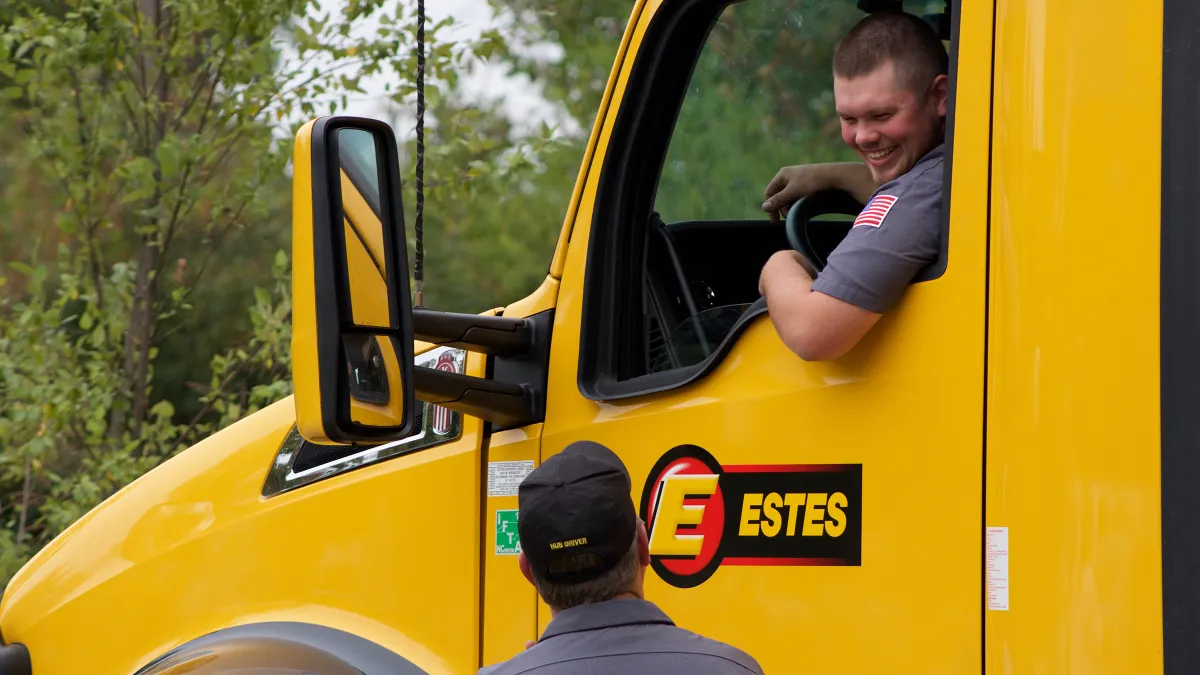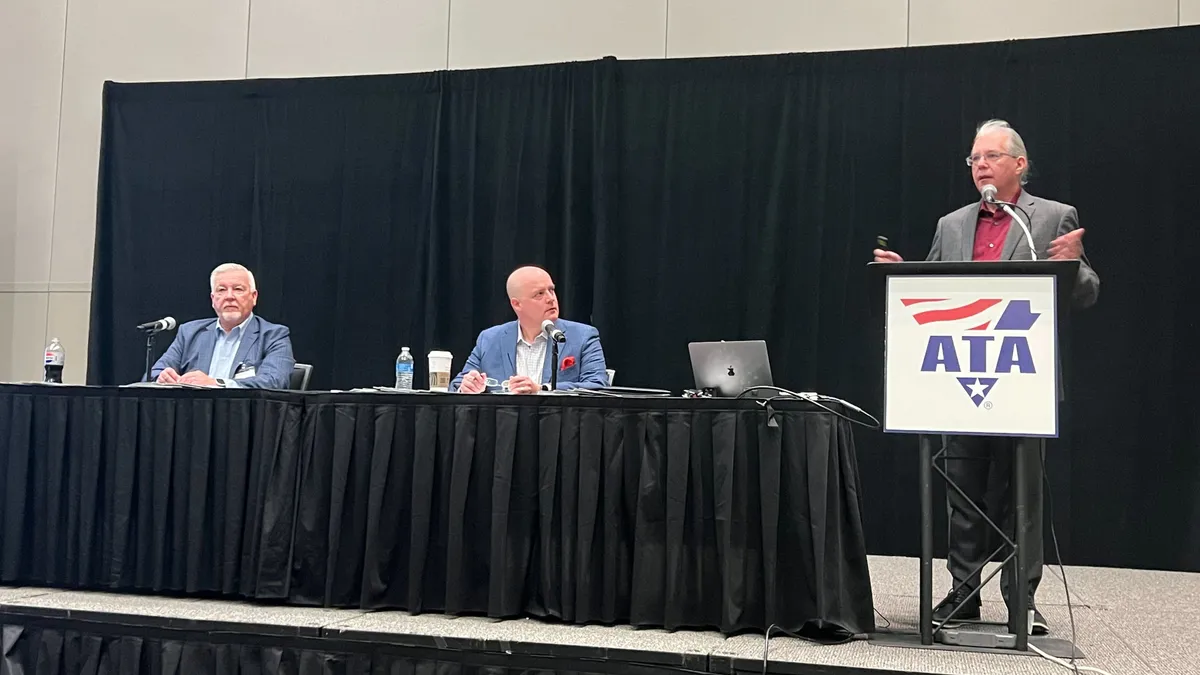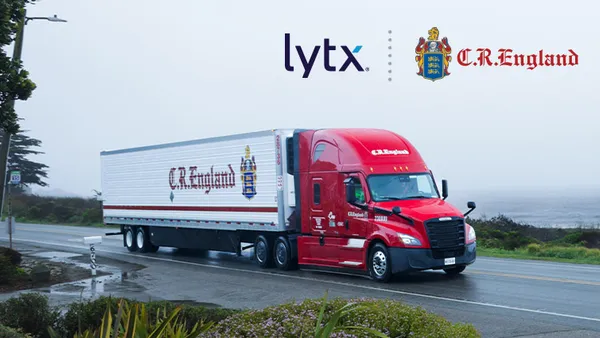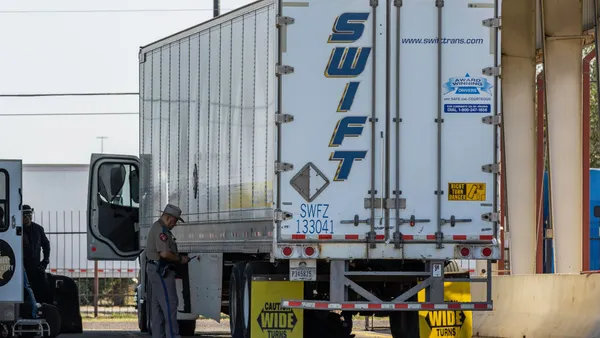Editor’s Note: Filling the Driver’s Seat is a series delving into fleets’ driver recruitment and retention strategies through the lens of the people leading the efforts. Know someone we should profile? Email [email protected].
Each graduate of Roadmaster Drivers School gets a celebratory shout-out on the program’s social media accounts.
The effect? The truck driver training company’s Twitter, Facebook and Instagram are full of their smiling photos — alongside interview clips with students and graduates reviewing the program, giving advice and sharing their motivations for wanting to drive a truck.
“Stay focused, and don’t give up,” urged Michael Lampkin, a Roadmaster student at a school near Orlando, Florida, in an Instagram reel last month. “I promise it’s the way to go. You will not regret it.”
The posts are a way for the St. Petersburg, Florida-based company, which opened its latest school in Houston last week, to recognize the accomplishments of its 8,000 or so graduates a year.
But each post also says “APPLY TODAY” and lists Roadmaster’s phone number, underscoring the underlying recruitment strategy of letting students and graduates make the case for enrolling and becoming a truck driver. A Werner Enterprises subsidiary, the company also recruits for Stevens Transport, Covenant Logistics and others.
Roadmaster President Brad Ball told Transport Dive promoting the program’s students and graduates encourages others to apply, while chipping away at longstanding stereotypes of who is — and isn’t — a truck driver.
In an industry where women account for only about 8% of the driver workforce, more than 20% of the students at the Roadmaster school near Orlando are women, a percentage Ball said is consistent across its two dozen locations.
“It's not like we're putting actors out there,” Ball said. “We're taking pictures of our real [student] population.”
Houston school opening emphasizes demand in Texas
The company president and Houston City Council Member Mike Knox cut a ribbon at the official opening of the new driving school on May 18.
The 5-acre property is Roadmaster’s fourth driving school in Texas, Ball said. The three existing schools in the Lone Star State are in San Antonio, Dallas and Fort Worth. Another is on the way in Louisville, Kentucky.
“We tend to go where the carriers need us most,” Ball said. “Texas is a big transportation hub, and when we talk to our carriers, they tell us they need more drivers out of Houston. So that's where we chose to expand.”
Larger Roadmaster schools graduate up to 1,200 approximately students per year, Ball said. As the Houston school gets up and running, it should graduate roughly 400 to 600 in the first year, he said.
Forging ahead with recruitment in a soft freight market
Carriers have tightened their hiring criteria in a challenging demand environment, Ball said. Even in a tough economy, though, high-demand areas such as Texas and the Midwest attract trucking jobs.
“Those drivers still have plenty of opportunity to come out of school with job offers in hand,” he said.
Trucking doesn’t require a college degree, and about a month of training can put drivers on a path to earn an average of $64,000 with benefits, the Roadmaster president noted.
“I don't know of any other opportunity where you go from unemployed or underemployed to that level of pay in about a month,” he said.
But too many people entering the trucking industry are set up to fail by choosing the wrong training provider, Ball said. He encouraged driving school applicants to choose carefully — and urged the FMCSA to enforce requirements that all programs join its training provider registry and follow the Entry-Level Driver Training curriculum.
“Allowing bad training providers to remain in business, we are doing a disservice to students and we're doing a disservice to the motoring public,” Ball said.



